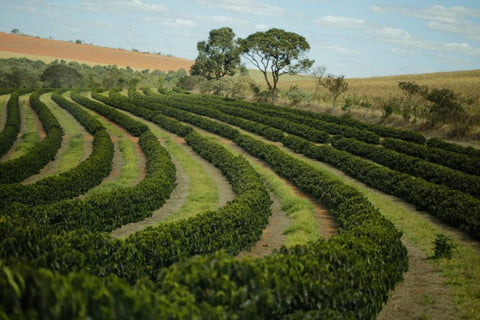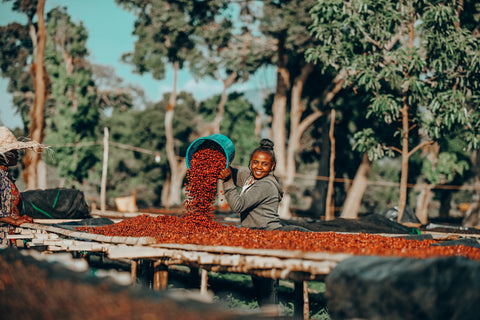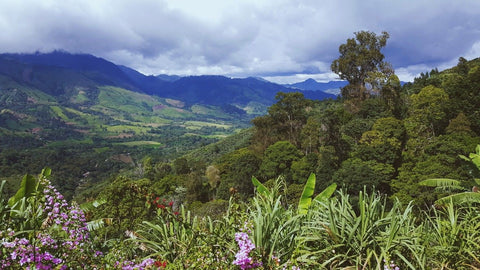Sourced Coffee Farms
Parceiros do Cafe
Parceiros do Café, or Coffee Partners, originates from the Cerrado Mineiro, a Brazilian region which has gained popularity in recent years for its cooperative, sustainable philosophy. The flat highlands of the region makes it particularly favorable for growing coffee, of which Cerrado Mineiro produces 12.7% of Brazil’s entire output. Nine farmer cooperatives form the Cerrado Mineiro Coffee Growers Federation, an organization whose dedication to traceability and ethics has made it a choice producer in the third-wave coffee world. Every bag of green beans comes with a scannable QR code with information not only about the region, but the specific lot on the farm which the beans were grown. This emphasis on traceability means that you can rest easy knowing that you’re getting the best quality, most ethically sourced beans available on the modern market.
Konang Springs Natural
Nestled in the foothills of Mount Argopuro on the Indonesian Island of Java is the village of Tlogosari, and a community of coffee farmers called the Pokmas Walida Cooperative with an exceptional eye for detail. These coffee beans were dried naturally for sixteen days, requiring stirring hourly during the drying process. Most Indonesian farmers grow coffee alongside other crops, and as a result do not fully understand the processes necessary for creating wonderful coffee. Other farmers might opt for artificial drying processes, for example. Not so for the Pokmas Walida Cooperative. They understand the benefits of the painstaking work required to make great coffee, making this truly a rare find.
Ethiopian Mother Station Washed
There is a washing station on the banks of the Qonqana river, a mill in the Bombe region of Ethiopia which attracts coffee growers from the surrounding area to process and wash their crop. Known as “The Mother Station” by locals, it’s the first and largest project by Daye Bensa Coffee, a company run by brothers Asefa and Mulugeta Dukamo. These beans have been processed at the mother station and were farmed locally. After washing the beans and processing them using environmentally friendly machinery, they are dried in the open air until they are ready to be sold.
Nicaragua La Estrella
“La Estrella” or “The Star” comes from coffee processed by a wet mill of the same name in the Nueva Segovia region of Nicaragua, which is partially a nature reserve. The complex biodiversity of the areas lends itself to a similarly complex flavor profile in this coffee that up until recently has been relatively undiscovered. It was only in 2013 that the mill was built, allowing local growers a way to break into the international market.
Magia del Campo
In Tolima, Colombia, an organization of coffee growers known as ASOPEP is fighting back against the region’s perception as a violent area unsafe for investors. Together with 275 other members, ASOPEP’s general manager Camilo Enciso has carved out an industry in coffee and is helping to restore a community once racked with violence to become one of the foremost coffee producers in Colombia. ASOPEP crowd-funded protective equipment for its workers when the COVID-19 pandemic began, and continues to provide high quality, specialty farmed coffee to suppliers around the world.
Lenca
The Morazan region of El Salvador is a land with ancient roots. In a literal sense, the roots of the region’s forests have dug into the fertile ground for thousands of years, resulting in the formation of “cloud forests” high in the region’s mountains. In a cultural sense, the indigenous roots of the Morazan refer to it as Lenca, which translates to “The Land of Abundant Water” in a language which is spoken by very few. These roots, both culturally and ecologically, give rise to some particularly exceptional coffee. Recent encroachments by loggers have threatened deforestation in the region, but farmers have pushed back along with international partners to ensure that this magnificent coffee continues growing.



